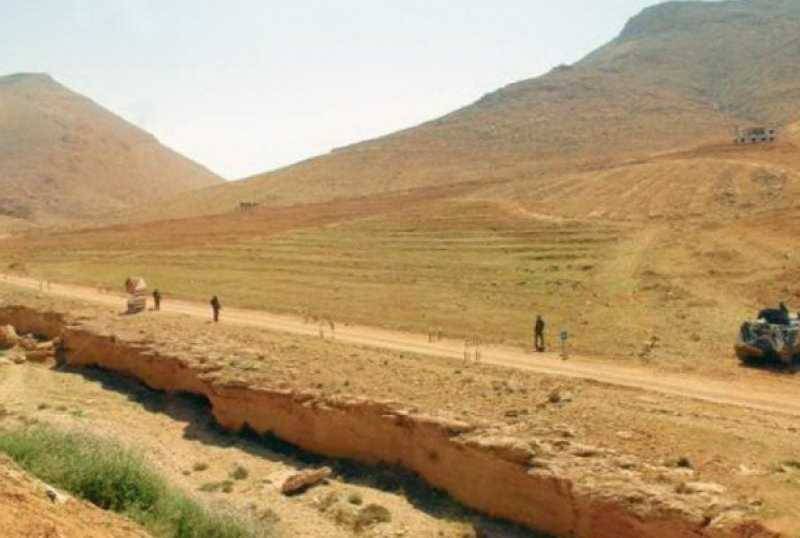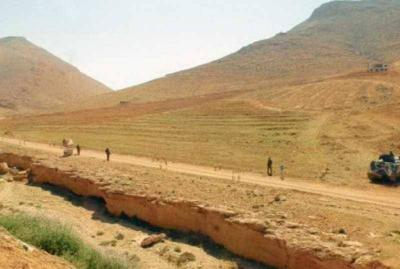The common explanation for the Syrian protest against the 38 British towers, built along the northeastern border between Lebanon and Syria, is that it relates to the reservations of the Syrian regime's Lebanese allies regarding the British proposal to construct similar towers on the southern border between Lebanon and Israel as part of a ceasefire between Hezbollah and the Israeli army, in an American-French-European effort, as mentioned in "Nidaa Al-Watan."
Some link the Syrian objection to these towers with the inclusion of ideas related to the implementation of UN Resolution 1701, particularly the re-demarcation of borders between the two countries, in the context of discussing the Israeli withdrawal from the occupied Shebaa Farms at a later stage of any agreement transitioning from a ceasefire on the southern front to a final ceasefire. It is known that Damascus has not accepted border demarcation since 2006, aiming to solidify Lebanon's sovereignty over the farms with the United Nations. The same applies to the northeastern border, which Damascus has deferred multiple times.
Until another interpretation of the message sent by the Syrian Foreign Ministry to the Lebanese Foreign Ministry is clarified, the Syrian side has avoided mentioning any supposed reservations regarding the idea of towers on the southern border, proposed by British Foreign Minister David Cameron during his visit to Beirut. The message highlighted the threat to "Syrian national security" from the perspective that these towers reveal the internal depth of Syria, raising concerns about British officers being present in these towers and using equipment for intelligence gathering.
Additionally, Damascus is aware that the construction of these towers began in 2012, with public British support aimed at assisting the Lebanese army in monitoring the border, particularly the flow of terrorist groups from Syria to Lebanon during that period, especially when ISIS controlled vast areas of the Levant. It took Syria over a decade to object to their establishment. If the claim that Britain benefits from these towers to supply Israel with information is valid, it has become outdated. This is enough to deduce that the real goal is something else.
The Syrian army could have inquired about the towers or objected to them in past years through the military liaison committee between the Lebanese and Syrian armies, according to "Nidaa Al-Watan." The officers of this committee meet and communicate regularly, and its activities did not cease even during the worst deterioration of Syrian-Lebanese relations in 2005. However, this was not pursued while official bodies in Beirut were considering a response to the message.
Contacts with the Lebanese army, especially its command, confirm the following:
- There are no British officers in these towers. Only army forces are present there and conduct routine patrols between them. The implication of the message suggesting that the presence of British personnel enables Israel to obtain information about movements in Syrian territory does not hold in this case.
- The binoculars and cameras installed in the towers are used by the army to monitor smuggling routes between the two countries, revealing only a few kilometers of Syrian territory rather than deep areas, as suggested in the protest message. The cameras are operated either by the military present there or controlled remotely solely by the army.
In recent years, positions and campaigns have periodically emerged from media circles close to Hezbollah against the establishment of these towers, sometimes arguing that they enable surveillance of Lebanese-Syrian border points to constrain resistance, and at other times claiming they serve the purpose of internationalizing the issue of border demarcation as part of efforts to expand the application of 1701 towards the Lebanese-Syrian border.
Beyond political interpretations, are these towers now bothersome to certain factions in Damascus because they expose their involvement in smuggling, as accused by several Arab countries, both to and from Lebanon, particularly regarding banned goods, drugs, and weapons that generate significant revenue for them?
In any case, the message does not align with the late President Hafez Assad's equation regarding the relationship with Lebanon: one people in two countries.




